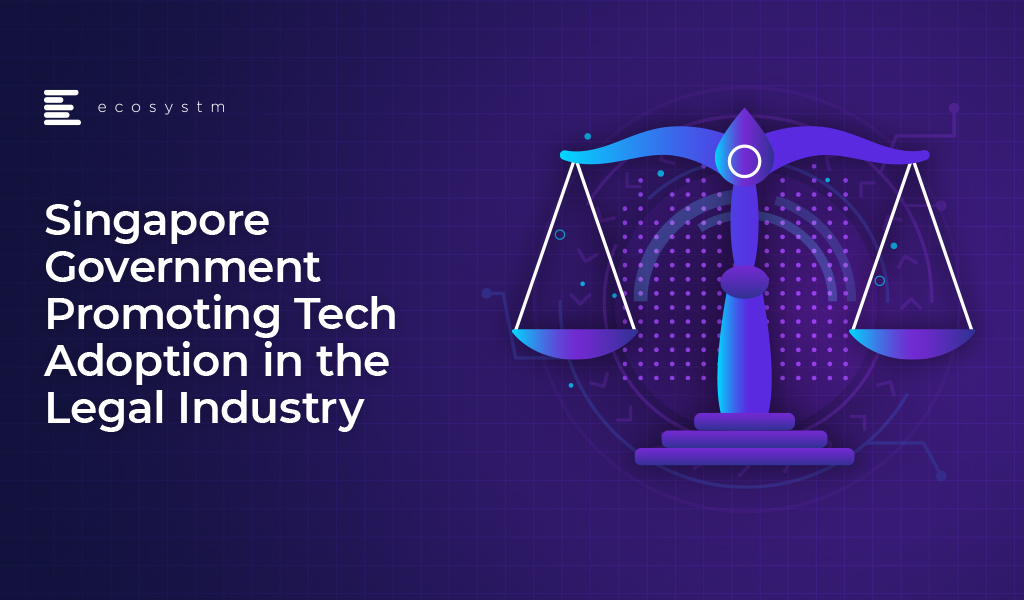The Law Society’s Lawtech Adoption Research, February 2019 finds that there are significant drivers to tech adoption by legal firms. The drivers range from increasing workloads and job complexity, the needs of the younger tech-savvy legal workforce and the eternal client needs of lower costs and faster delivery. The research also finds that the B2B market is the more mature in their tech adoption – particularly the larger law firms – and solutions such as legal analytics, project management, governance and compliance, and contract management are being evaluated. Technologically mature law firms appear to have already adopted collaboration tools, document management, IP management and eBilling solutions. While the B2C market is yet to show the same level of tech adoption, law firms are beginning to evaluate customer services such as chatbots, DIY law, robot lawyers and triage tools.
The research shows that there is a growing appetite for legaltech and indicates that countries across the world would do well to start their investments to support their legal community now.
Singapore Continues to Invest in Legaltech Research
The Singapore Government recently announced a grant of SGD 10.8 million to the Singapore Management University (SMU) School of Law to manage a legal technology research program. The grant comes from the National Research Foundation Singapore, under the Prime Minister’s Office. Ecosystm Vice President and General Counsel, Nandini Navale calls this step commendable and timely. “This is indeed proof that streamlining and digitalisation of the laws and the legal ecosystem in Singapore – although expensive – is an imperative investment.”
SMU intends to establish a Centre for Computational Law (CCL) and a five-year research program, focusing on Smart Contracts and Smart Statutes. Navale says, “The CCL has the potential of evolving into a robust platform for lawyers, legaltech professionals and law firms who are gearing up to adopt legal technology, artificial learning (AI) and machine learning to remain relevant in the new age. Legaltech such as AI-based due diligence tools, auto-generated contract solutions, practise management software, and deal room software have certainly changed the traditional law firm model in the recent past.” Navale sees the CCL as being able to deliver self-executing Smart Contracts and alternate coding solutions based on blockchain and distributed ledger technology (DLT), which will potentially transform the way the world works promising more transparency, and time and cost-efficiency.
The CCL follows the example of the Centre for Technology, Robotics, Artificial Intelligence & the Law (TRAIL), a research unit under the National University of Singapore Faculty of Law (NUS Law), launched in December 2019. TRAIL was set up with the intentions of being an international think-tank that enables inter-disciplinary communities to research into legal, ethical, policy, philosophical and regulatory issues associated with the use and development of IT, AI, data analytics and robotics in the practice of law.
“Digitalisation has undoubtedly transformed the world, established a new normal and redefined the ‘Future of Work, Play and Living Life’. While one of the most glaring advantages of digitalisation is significant simplification and ease, the flip side is that the legal systems and regulators are constantly faced with both policy and practical challenges, such as implementation and enforcement,” says Navale. “Fintech solutions such as Digital Banking, RegTech, SupTech and SaaS-based compliance and anti-money laundering (AML) tools – are all solid examples of the rapid impact of technology. This creates an immediate and imperative need for regulators to constantly reflect on, review and revise existing laws, policies, and regulations. And initiatives such as the CCL may just be the solution.”
Singapore is encouraging the adoption of technology in the legal sector for higher efficiencies. In May, the Ministry of Law (MinLaw), Enterprise Singapore, the Infocomm Media Development Authority (IMDA) and the Law Society of Singapore (LawSoc) announced the launch of a new SmartLaw Guild to encourage law firms to adopt technology.
The SmartLaw Guild brings together case studies from the legal industry and organises knowledge sharing sessions. Speaking at the launch of SmartLaw Guild, Communications and Information Minister S Iswaran, said that the majority of legal practices in Singapore are catered to the SME sector given that 90% of organisations in Singapore fall under the category. The Government is making an effort in the evolution of technology to support the SME legal practices. Mr. Iswaran also encouraged practicing lawyers to take advantage of the skills training provided by the IMDA’s Techskills Accelerator initiative in areas such as cybersecurity, AI and data science.
Why have Law Firms been Slow in Tech Uptake?
A LawSoc survey held in 2018 showed that the adoption of technology helps in the delivery of legal services but only an estimated 12% of law firms in Singapore appears to have adopted digital technology till date. Hence, to encourage digitalisation of the legal industry, legal firms in Singapore will benefit from the SGD 3.68 million fund that has been set aside, to provide them with funding support for adopting technology solutions.
Commenting on the announcement, Ecosystm VP & General Counsel, Nandini Navale said “Across jurisdictions, law firms are bound to licensing and regulatory conditions and have to follow strict standards of professional ethics, confidentiality, and care to clients. This could be a possible reason for their ‘abundantly cautious’ approach towards the adoption of new technology and digitalisation. A glitch or even a minor fault in the technology could result in the loss of license to practise, breach of regulatory obligations, reputational damage or can compromise the interest/privacy of clients. Therefore, AI and technology in systems and processes will have to be proven reliable and fail-safe as a condition for the implementation in the legal sector.”
Law has been a conservative industry. This is fast changing, however with the “BigLaw” in countries investing heavily in technology and looking to implement AI to help their legal staff perform due diligence and research, provide additional legal insights and in process automation in legal work.
Advanced technology solutions powered by AI are enhancing business capabilities and the adoption of AI in the legal industry can help in a quicker resolution of disputes and more consistent outcomes. “AI is capable of transforming the legal sector. The technology could be used to sift through volumes of case law and litigation history, and help lawyers to interpret, prepare and support their positions. Legal issues spotters are being utilised in the contract due diligence and review, legal-tech being deployed for routine and low-value work. Applications for time trackers, billing and invoicing, and legal data analytics are also being adopted” says Navale “The Singapore Government is indeed walking the talk – an example of this is the introduction of the Venture Capital Investment Model Agreements (VIMA) documentation.” The initiative was launched in 2018 by the Singapore Academy of Law (SAL) and the Singapore Venture Capital & Private Equity Association (SVCA) which comprises a set of standard documents that improve the process of structuring a deal and transactions for venture capital firms, start-ups, and SMEs. The core working group for the initiative adopted technology and created a questionnaire that guides through the documentation with auto-versioning and customisation to save time, cost and effort.
How have some Disruptive Technologies Impacted the Legal Industry?
Amit Gupta, CEO, Ecosystm interviewed Matt Pollins, Partner of renowned law firm CMS where they discussed the legal implications of AI as well as the uptake of new technologies in the legal industry.
What do you think are the implications of technology adoption in the legal industry?
Let us know in your comments below.



